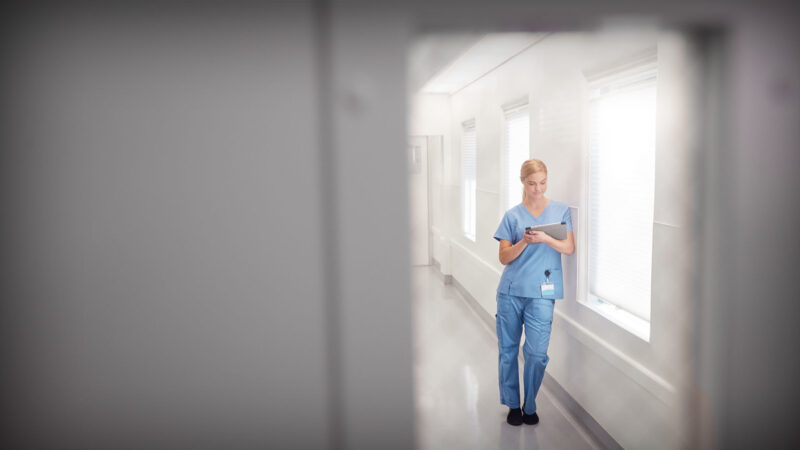CONGENITAL HYPOTHYROIDISM: AWARENESS, DIAGNOSIS AND TREATMENT IN PAEDIATRICS
People In Health Care
Associate Professor Michelle Jack, Paediatric Endocrinologist
Clinical Practice & Co-Lead Doctor of Medicine, Bond University, Queensland
Filmed Robina, Queensland | October 2024
Michelle Jack is Associate Professor of Clinical Practice, Faculty of Health Sciences & Medicine at Bond University, QLD, co-Head of Paediatrics and a Paediatric Endocrinologist at Lismore Base Hospital in NSW and Senior Staff Specialist, Paediatric Endocrinology, Northern New South Wales Local Health District.
Associate Professor Jack is a member of the ANZSPED Laboratory and Newborn Screening Sub-committee https://anzsped.org/subcommittees/lab-group/ and Thyroid working group https://anzsped.org/subcommittees/thyroid-working-group/.
Australian Health Journal spoke to Associate Professor Jack about congenital hypothyroidism and newborn screening and her concerns in the varying thresholds for across different states in Australia. Despite the existence of newborn screening programs since the 1970s, there is still controversy surrounding the appropriate screening levels. Congenital hypothyroidism, affecting about one in 3500 infants, can lead to severe intellectual and physical impairment if not diagnosed early. The condition is mainly caused by the thyroid gland’s failure to develop properly, resulting in insufficient thyroid hormone production.
The current challenge lies in setting the right screening thresholds to avoid false positive or missed diagnoses. Assoc Prof Jack highlights the need for standardisation in the approach to borderline thyroid abnormalities in children, as the wide variety of responses from paediatric endocrinologists indicates a lack of consensus. She emphasises the importance of conducting high-quality research to determine the optimal screening thresholds, considering both the impact on infants and their families and the healthcare system’s cost.
Associate Professor Jack is passionate about the health and wellbeing of children and adolescents, with diverse research areas including the impacts of family friendly workplace initiatives, screening and management of thyroid disorders in infants and children. She supports her First Nations colleagues on Indigenous-led research projects funded by the Medical Research Future Fund, aiming to improve the social and emotional wellbeing of First Nations Children. Through her clinical and academic roles, Michelle hopes to make a positive difference to the health and well-being of children and their families.
References on congenital hypothyroidism
ANZSPED website resources on congenital hypothyroidism
– https://anzsped.org/patient-resources/hormones-me-booklet-series/
– https://anzsped.org/patient-resources/anzsped-patient-flyers/)
Fifty years of newborn screening for congenital hypothyroidism: current status in Australasia and the case for harmonisation
You Might also like
-
Upskilling & empowering Health Professionals to support preconception to pre-school level health
A new podcast series, developed by Health and Wellbeing Queensland, is designed to upskill and empower health professionals in their support of parents from preconception through to the pre-school years.
Clinician’s Guide to the First 2000 Days follows the success of Health and Wellbeing Queensland’s first podcast series Clinician’s Guide to Healthy Kids, launched in 2023. Both focus on supporting health professionals to have effective conversations on positive health behaviours.
-
Career advice from an Emergency Physician in Research
Associate Professor Viet Tran, an experienced emergency physician at the Royal Hobart Hospital. He spoke with Australian Health Journal about the crucial role of emergency departments as the frontline of hospitals, providing immediate care, diagnosis, resuscitation, and serving as a safety net for the healthcare system. Prof. Tran highlights the importance of understanding the daily responsibilities and core aspects of a specialty when choosing a medical career.
-
Empowered nurses leading digital health enablement
Nurses have a pivotal role to play in the widespread implementation and adoption of digital health technologies throughout the healthcare sector for the primary purpose of improving safety and quality of patient care.
Australian Health Journal talked to two of Australian top leaders in nursing and in digital health on how the role of nursing is pivotal to the success of digital health in the Australian health system.



